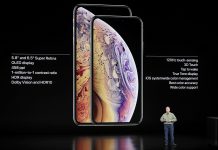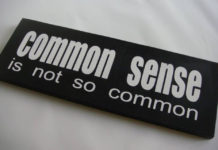I have frequently discussed the addictive powers of technology on the human personality, but something new has come to my attention which I never considered before. Whereas everyone from the Greatest Generation to the Millennials are generally aware of computers in the traditional sense, e.g.; the processing unit, screen, keyboard, mouse, etc., we now have a new generation, “Z”, which is unfamiliar with such concepts. In a recent report from Japan, the members of Generation Z, who grew up with smart phones, have no concept of basic computing, nor how to use it.
What is emerging is a new “digital divide” among the generations whereby Generation Z is losing the sense of how to use a simple keyboard and mouse. Consequently, the use of such things as spreadsheets and other programs designed around the keyboard and mouse are becoming nebulous concepts. For example, they are at a loss as to entering data or formulas into a cell in a spreadsheet.
Beyond the effective use of classic computers, you have to wonder what other effects we can expect from the excessive use of smart phones. First, we must remember the smart phone may be fine for watching videos, listening to audios, and looking at graphics and photos, but as an input device it has definite limitations. This is a situation where ergonomics has been sacrificed for the sake of miniaturization. Consequently, most of us are now content sending small text messages using a sort of shorthand. This may be fine for basic communications, but not a professional way to write letters and agreements with customers, vendors and employees. In other words, it is having an adverse effect on our ability to communicate professionally.
In the Japanese report, they claim young people have learned to write reports for school on their smart phones. This is a bit mind-boggling when you consider the small screen size. You also cannot help but wonder how much text is cut/pasted from other sources, which implies an increase in plagiarism, thereby affecting our morality. It would be nice if voice-type dictation was more effective, but it has not made significant progress over the last few decades.
Without the aid of a keyboard, I am at a loss as to how programmers will write the precise and voluminous source code for software. This might signal a slowdown in technology improvements.
Also, because of the screen size, you have to wonder about the future of books and lengthy news articles as it is unlikely people would actually read such voluminous items on smart phones.
This digital divide may also have a significant impact on education. For example, whereas the personal computer made typing classes obsolete, the smart phone may very well do the same thing to Personal Computers.
What happens though when the smart phone has run its course and a new, even smaller device, is introduced, perhaps even a chip in the brain? Will we have to simply “think” to compose a letter? If so, will we know how to effectively write for people or will it just be gibberish?
No matter what happens in the future, the days of the lengthy novel and storytelling appears to be numbered. So much for the likes of Hemingway, Poe, Clavell, Dickens, Faulkner, Steinbeck, Tolstoy, Salinger, Rowling, Kipling, Lawrence, Hardy, Twain, et al. As Margaret Mitchell would have said, they represent “A civilization…Gone with the Wind.”
Keep the Faith!
Note: All trademarks both marked and unmarked belong to their respective companies.
Tim Bryce is a writer and the Managing Director of M&JB Investment Company (M&JB) of Palm Harbor, Florida and has over 40 years of experience in the management consulting field. He can be reached at timb001@phmainstreet.com
For Tim’s columns, see: timbryce.com
Like the article? TELL A FRIEND.
Copyright © 2018 by Tim Bryce. All rights reserved.
Listen to Tim on WZIG-FM (104.1) in Palm Harbor,FL; Or tune-in to Tim’s channel on YouTube. Click for TIM’S LIBRARY OF AUDIO CLIPS.













